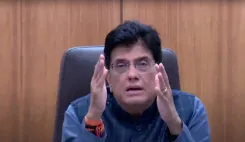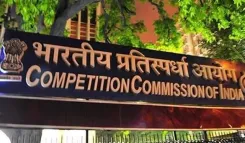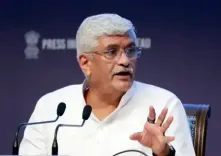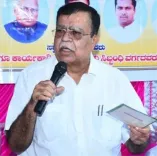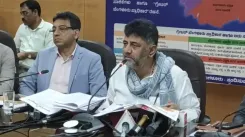How are Merck and Tata Electronics Enhancing Semiconductor Capabilities in India?
Synopsis
Key Takeaways
- Strategic collaboration between Merck and Tata Electronics to enhance semiconductor capabilities.
- Focus on high-purity materials and advanced manufacturing processes.
- Development of India's first Fab in Dholera with significant investment.
- Commitment to safety and manufacturing excellence.
- Support for the India Semiconductor Mission.
New Delhi, Sep 2 (NationPress) The German technology leader Merck and Tata Electronics Private Limited have established a Memorandum of Understanding (MoU) on Tuesday aimed at forming a strategic alliance to collaboratively advance capabilities in semiconductor materials, semiconductor fabrication infrastructure, and specialty chemical and gas distribution within India.
Through this collaboration, Merck is set to provide a comprehensive range of products and services, which include high-purity electronic materials, advanced gas and chemical delivery systems, complete fab infrastructure services, and Material Intelligence solutions driven by AI, specifically for Tata Electronics’ new Fab in Dholera, Gujarat, as per Merck's announcement.
In addition to this partnership, Merck will disseminate best practices in safety and manufacturing excellence while granting access to platforms like Athinia, a secure data analytics platform designed for collaboration among semiconductor industry participants. The partnership also includes plans for localized warehousing, development of raw material supply chains, talent cultivation, and the establishment of industry processes and standards within India.
Dr. Kai Beckmann, a member of Merck's Executive Board and CEO of Electronics, stated: "India's semiconductor journey is gaining international traction, and Merck is honored to be among the pioneers supporting it from the start. Our collaboration with Tata Electronics exemplifies our enduring strategy: to act as a reliable partner in key growth markets, enabling scalability through safety, precision, and innovation. Together, we aspire to construct a resilient, future-ready materials ecosystem that aligns with India's semiconductor goals."
Randhir Thakur, CEO & MD of Tata Electronics, remarked: "We have an ambitious vision to emerge as a leader in semiconductor manufacturing by delivering integrated solutions across the value chain to our international clients. This strategic alliance with Merck not only introduces world-class expertise in advanced materials but also embodies a mutual commitment to the utmost standards of safety and manufacturing excellence. By utilizing Merck’s extensive global experience in chemical safety, process optimization, and digital tools, we aim to create a resilient ecosystem and expedite the timely execution of our Fab in Dholera, Gujarat. Together, we seek to establish new benchmarks in quality, safety, and innovation within the global semiconductor sector."
The MoU aligns with the objectives of the India Semiconductor Mission and highlights Tata Electronics' and Merck's proactive roles in fostering indigenous semiconductor capabilities. Tata Electronics is developing India's inaugural Fab in Dholera, Gujarat, with a total investment of ₹91,000 crore (approximately $11 billion). This facility will manufacture semiconductor chips for various applications, including automotive, mobile devices, artificial intelligence (AI), and other essential segments, catering to global clientele. The construction of this facility is advancing swiftly, and it is vital to encourage partnerships across the entire semiconductor ecosystem, which includes process and design technology, materials, equipment, and other critical elements.
With its vast experience in semiconductor materials and sub-fab services worldwide, Merck brings significant technical expertise, global standards, best practices, and a strong commitment to safety and sustainability to the Indian market. This collaboration will support Tata Electronics’ Fab and contribute to catalyzing the wider industry ecosystem, encompassing suppliers, talent, and technology development, thereby reinforcing India's position in the global semiconductor value chain.


